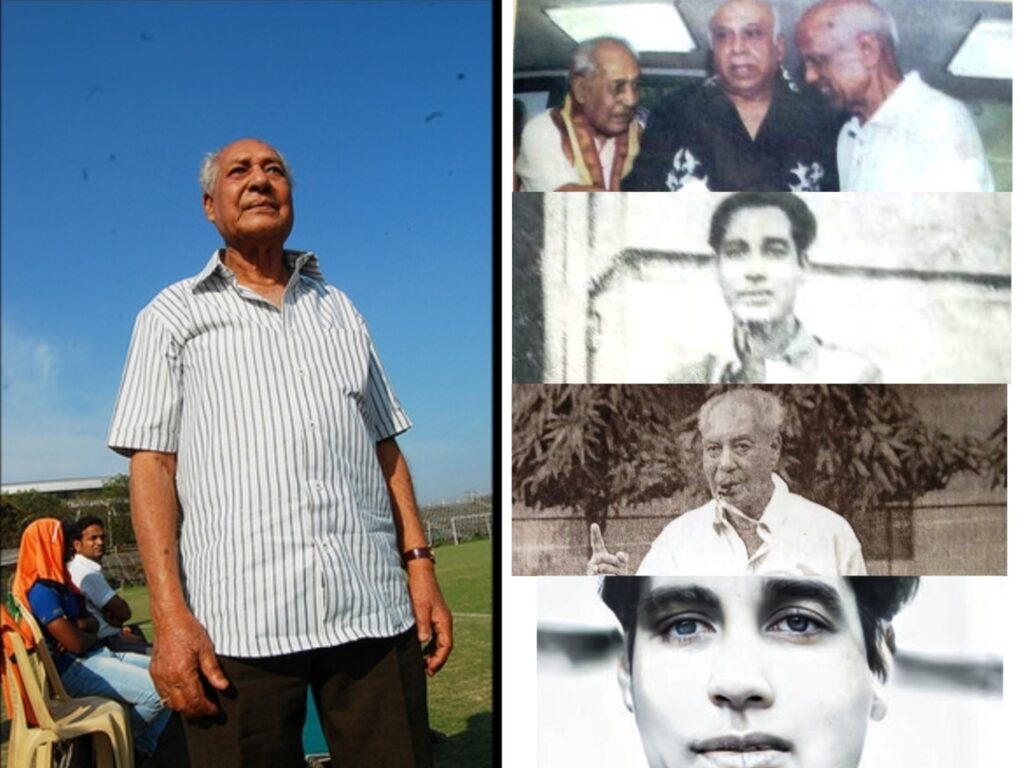
I was born and brought up in New Delhi, where my father was posted. With my grandparents, from both sides, staying in Kolkata, the two-month summer vacations were the only time we got together and spent some good time as a family. For me, the stories used to revolve around football and cricket. I was always fascinated by sports, perhaps it is still running in the blood. My maternal grandfather and great uncles were all professional sportspersons.
Three of them — Anil, Kamal and Subodh Bhattacharya — played cricket, while Sushil Bhattacharya was regarded as one of the pioneers of Indian football and coaching. I had my ears locked whenever I used to hear how Mumbai thrashed Bengal by 420 runs in the final of 1958-59 Ranji Trophy, where one of my great uncles – Anil – featured in the XI.
However, there was something gripping whenever Sushil, eldest of the brothers, narrated tales of mentoring the likes of PK Banerjee, Bhaskar Ganguly, Sudhir Karmakar, Krishanu Dey among others, or even how fans used to step up to help Tulsidas Balaram with his daily chores, like assisting him in washing clothes and what not.
Today is Sushil dadu’s eighth death anniversary and I cannot help but remember how East Bengal officials paid their last respects to him and draped his body with the club flag and flowers, with the club flag flying at half-mast in his honour, when he passed away in 2015. The club was everything to him. He played for East Bengal even ended up coaching the team later. In 1961, East Bengal won the Calcutta Football League and IFA Shield. I wasn’t born but the tales of how Sushil dadu tried to bring wing-play and a diamond formation into the game back had me hooked.
I don’t remember all the stories clearly, but I do remember one where I got to know the kind of respect players have for him. My mother and I were supposed to travel from New Delhi to Kolkata on Rajdhani Express starting from Sealdah. There was a family emergency, but, our tickets were wait-listed 1 and 2. The train had arrived and my mother was trying to convince a ticket collector to allow us in. We were ready to stand somewhere in the corner and travel but the official turned down our request.
That is when two women came out from the ticket collector’s coach. They were eminent former footballers Shanti Mullick and Kuntala Ghosh Dastidar, who led India in the 1981 World Cup. The duo recognised my mother straightaway. While my mom was narrating why we were so desperate to travel, I was standing and wondering who these two women are?!
“Chole eso, keu atkabe na. Amra dekhe nebo (Come on in, no one will stop you. We will handle it),” they said as we hopped into the train. Some fascinating stories followed explaining why they had helped us. “Sir er poribar mane amader poribar. Sir amader jonno ja koreche seta bhola jaye na (Sir’s family is our family. What he did for us, we can never forget).” Sushil dadu or borodadu, as we called him, had not only coached East Bengal but also the Indian women’s football team.
I remember asking my mother, why women’s football, does anyone even follow it? Her answer was simple. “Nobody watched it or were passionate about it like they were for their clubs or the national team and that’s why your borodadu wanted to bring a change.”
Sushil dadu had one regret during his last days when he was struggling with ailing health — the decline of Indian football. He used to have a spark in his eyes talking about the glory days and how the likes of PK Banerjee, Chuni Goswami, Tulsidas Balaram, Krishanu Dey, Bhaskar Ganguly used to leave the opponents mesmerised with their skills.
But when talking about modern football, there used to be a kind of sadness in his tone. He wanted the Indian football team to play against better teams to improve, he wanted them to not only watch the Messis and Ronaldos but to apply their techniques on the ground. “God-gifted player bole kichu hoye na. Jotokkhon na o nijer team ke help korte parche, niche neme ba nijer teammates der sahajjo korche, totokkhon or oi talent er dam nei (There is nothing called god-gifted talent. If he doesn’t help his teammates by doing the dirty work along with them, then his talent has no value).”
Trust me, when he used to talk about Indian football, the lack of quality and intensity on the field used to hurt him the most. That’s why he kept on requesting for more training camps, exposure, more matches against higher-ranked teams. With all of them still relevant in today’s day and age when the Indian football team is fighting to participate in the Asian Games, let’s hope that Sushil Bhattacharya’s wish to see Indian football grow comes true some day.
(Remembering Sushil Bhattacharya, former player and first-ever professional coach of East Bengal, winner of CFL and IFA Shield, and the first-ever coach of the Indian women’s football team. Thank you for everything, dadu.)